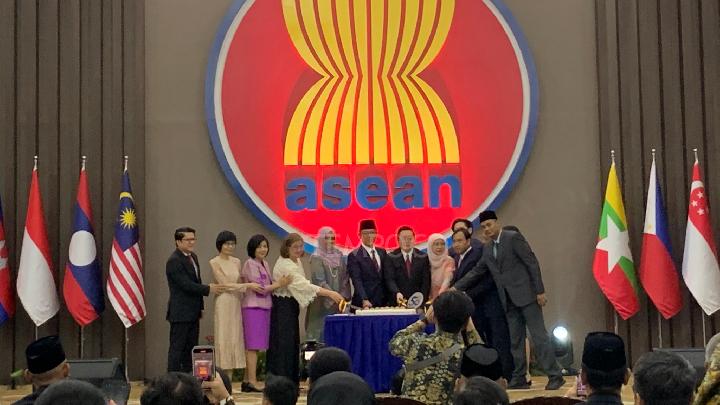The ASEAN DEFA agreement marks a pivotal step toward deeper regional digital integration. Governments have described the agreement as a framework that will harmonize digital trade rules, enable safer cross border data flows, and standardize elements like digital identity, payments and cybersecurity. For Indonesia—home to one of the region’s largest digital markets—the ASEAN DEFA agreement offers concrete opportunities: larger market access for startups, clearer rules for cross border e commerce, and increased investment into digital infrastructure and talent development.
What the ASEAN DEFA Agreement Actually Covers
At its core, the ASEAN DEFA agreement is designed to create a predictable and interoperable environment for digital trade across member states. Negotiators have focused the framework on key pillars: cross border data flows, data protection, e commerce facilitation, digital payments, digital identity interoperability, and cybersecurity cooperation. Those topics aim to reduce friction for businesses that sell, host, or provide services across ASEAN while embedding minimum safeguards for privacy and security.
The ambition is significant. ASEAN officials and analysts have argued that by lowering trade and regulatory barriers for digital goods and services, the region can accelerate digital adoption and unlock greater investment. Multiple studies estimate that a well-implemented DEFA could double the value of ASEAN’s digital economy from roughly US$1 trillion to as much as US$2 trillion by 2030, largely by making cross border digital commerce easier and safer.
Why Indonesia Stands to Gain from the ASEAN DEFA Agreement
Indonesia’s digital market already ranks among the largest in ASEAN. With a fast-growing base of consumers, startups and digital services firms, Indonesia can convert regional rule harmonization into immediate commercial benefits. First, clearer rules on cross border data flows and e commerce reduce compliance costs for Indonesian platforms that want to expand to neighboring markets. Second, interoperable digital payments and identity systems can speed onboarding across borders, reducing friction for small merchants trying to export digitally. Third, improved regional cybersecurity cooperation can raise trust and reduce incidents that harm consumer confidence.
From a policy perspective, Indonesian ministers have underlined that DEFA will provide new export channels for MSMEs and foster investment in cloud and data infrastructure. The government has framed the agreement as a tool to scale domestic digital champions and to attract foreign capital into Indonesian digital projects, while protecting consumer rights and data privacy.
Practical Benefits for Businesses and Consumers
For startups and established firms, the ASEAN DEFA agreement reduces legal uncertainty across multiple jurisdictions. When rules for data processing, e commerce documentation and digital contract recognition are harmonized, companies can build regional products with fewer bespoke country-by-country legal workarounds. That lowers go-to-market costs and shortens time to market.
For consumers, standardized protections and stronger cybersecurity cooperation mean better privacy protections and more reliable dispute resolution for cross border purchases. Interoperable digital identity and payments make it easier to buy from merchants in other ASEAN countries, increasing choice and competition—an outcome that can push down prices and raise quality.
For small and medium enterprises, the greatest gain is in market access. With simpler rules for cross border shipping, e invoicing and payments, MSMEs can list products on regional platforms and service distant customers with fewer legal and operational hurdles. This capacity to scale regionally is central to the economic case behind the ASEAN DEFA agreement.
Key Implementation Challenges and What Indonesia Must Watch
The promise of the ASEAN DEFA agreement does not eliminate implementation challenges. First, member states vary widely in digital readiness. Some have world-class data protection frameworks; others are still ramping up basic digital infrastructure. Aligning regulatory baselines will require transition periods and technical assistance.
Second, cross border data transfer safeguards must balance economic openness with privacy and security. Indonesia will need to ensure that provisions do not undercut national data-protection objectives while still enabling lawful flows for commerce and operations.
Third, regulatory capacity matters. Rolling out interoperable identity and payment frameworks demands technical standards, certifications, and testbeds. Indonesia will need to coordinate with private providers and regional partners to pilot practical interoperability steps.
Finally, trust-building is essential. The agreement’s benefits depend on businesses and consumers believing that cross border transactions are secure, legally enforceable and backed by quick dispute mechanisms. That requires both robust rules and demonstrable enforcement.
Recommended Strategic Actions for Indonesia
To maximize the gains from the ASEAN DEFA agreement, Indonesia should consider five complementary actions.
- Prioritize MSME Digitalization Programs. Equip MSMEs with training, platform access and subsidized digital payments integration so they can immediately leverage new regional market opportunities.
- Invest in Interoperability Pilots. Run pragmatic pilots for cross border payments and identity interoperability with a small set of partners to prove concepts before scaling.
- Strengthen Data Governance. Update domestic rules to ensure robust privacy protections and clear rules for cross border transfers, aligning with DEFA provisions to reduce friction.
- Promote Public-Private Cooperation. Convene industry, banks and platform companies to define technical standards and certifications that reduce onboarding friction for cross border trade.
- Set a Dedicated Transition Fund. Use targeted financing to help lower-income ASEAN members upgrade infrastructure, ensuring the DEFA benefits remain inclusive region-wide.
Long-Term Outlook: From Framework to Economic Impact
If implemented well, the ASEAN DEFA agreement could not only double the size of the regional digital economy by 2030 but also reposition ASEAN as a more coherent market for digital services and investment. That outcome requires credible sequencing: finalize high-level rules, pilot technical interoperability, and scale capacity building while maintaining strong consumer protections.
For Indonesia, reaching for these objectives offers an immediate commercial upside and a longer-term structural gain: stronger domestic digital firms, more jobs in high-value services, and improved public services enabled by cross border data and platforms. The ASEAN DEFA agreement is a tool; how Indonesia and its partners use it will determine whether the region achieves a step-change in digital growth and inclusion.
Read More






 Tuesday, 27-01-26
Tuesday, 27-01-26







